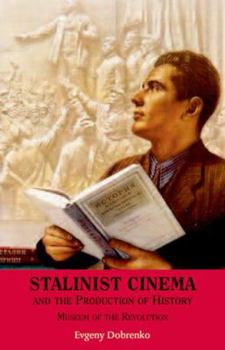Stalinist Cinema and the Production of History: Museum of the Revolution
This book explores how Soviet film worked with time, the past, and memory. It looks at Stalinist cinema and its role in the production of history, the conversion of the present and experience into history, mechanisms of transfer, and what is located between history and the past. The representation of history is always the representation of power. The institution of legitimization and the mechanism for the production of identity, history is the past, constructed and served by the authorities who are attempting to curtail the experience by packaging it into a literary narrative and new visual imagery. Cinema's role in the legitimization of Stalinism and the production of a new Soviet identity was enormous. Both Lenin and Stalin saw in this 'most important of arts' the most effective form of propaganda and 'organisation of the masses'. By examining the works of the greatest Soviet filmmakers of the Stalin era - Sergei Eisenstein, Vsevolod Pudovkin, Grigorii Kozintsev, Leonid Trauberg, Fridrikh Ermler, Mark Donskoi, Mikhail Romm - the author explores the role of the cinema in the formation of the Soviet political imagination.Key Features*The first study of Stalinist cinema, which fills a gap in the history of Soviet film.*Covers the works of great Soviet film directors.*Focuses on Stalinist political imagination, one of the most understudied aspects of Stalinism.
Format:Hardcover
Language:English
ISBN:0748634452
ISBN13:9780748634453
Release Date:March 2008
Publisher:Edinburgh University Press
Length:320 Pages
Customer Reviews
0 rating





